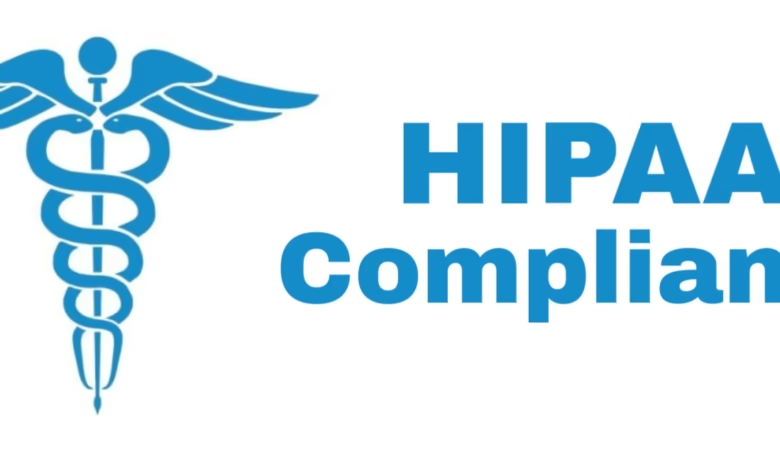HIPAA Compliance: A Complete Guide for Texas Healthcare Providers
Introduction HIPAA compliance is crucial for the healthcare industry in Texas and the United States. The Health Insurance Portability and Accountability Act (HIPAA) was enacted to protect patient information and ensure that healthcare providers, insurance companies, and business associates handle sensitive data responsibly. This comprehensive guide will cover everything you need to know about HIPAA compliance, including the HIPAA compliance checklist, the HIPAA Privacy Rule, HIPAA law, and the latest HIPAA regulations. Whether you are a small clinic or a large healthcare organization in Texas, this guide will help you stay compliant and avoid hefty penalties. Also Read: Best Medical Billing Companies in USA What is HIPAA Compliance? HIPAA compliance refers to following the guidelines set forth by the HIPAA law to safeguard Protected Health Information (PHI). Compliance is required for covered entities such as hospitals, healthcare providers, insurance companies, and their business associates. Also Read: Best Medical Coding Companies in USA Why is HIPAA Compliance Important? HIPAA compliance is not just a legal necessity but a fundamental requirement for safeguarding patient trust and data security. Ensuring compliance reduces risks associated with data breaches and enhances the credibility of healthcare organizations. Protects patient confidentiality Prevents data breaches and cyberattacks Ensures trust between patients and healthcare providers Avoids legal penalties and fines from the U.S. Department of Health and Human Services (HHS) Improves overall healthcare data management Also Read: Benefits of Partnering with Medical Billing Company HIPAA Compliance Checklist To ensure full compliance with HIPAA regulations, healthcare organizations, and business associates should follow this HIPAA compliance checklist: Implement Administrative Safeguards Conduct regular risk assessments Develop and enforce HIPAA-compliant policies Designate a HIPAA Compliance Officer Provide regular HIPAA training to employees Establish an incident response plan Apply Physical Safeguards Restrict physical access to PHI Implement security measures for devices storing patient data Secure workstations and mobile devices Ensure proper disposal of electronic PHI Enforce Technical Safeguards Use data encryption for PHI transmission Implement multi-factor authentication for system access Conduct regular vulnerability scans and penetration testing Maintain audit logs for tracking access to PHI Maintain Organizational Safeguards Execute Business Associate Agreements (BAAs) Establish contingency plans for data recovery Develop a clear incident response plan Ensure Compliance with the HIPAA Privacy Rule Limit access to PHI to only authorized personnel Provide patients with their medical records upon request Obtain patient consent before sharing PHI Implement policies for the minimum necessary use of PHI Also Read: Medical Billing Process Understanding the HIPAA Privacy Rule The HIPAA Privacy Rule establishes guidelines for using and disclosing PHI. It applies to healthcare providers, insurance companies, and their business associates. Key Components of the HIPAA Privacy Rule: Gives patients control over their PHI Requires written patient consent before sharing data Restricts unauthorized access to PHI Mandates secure storage of PHI records Allows patients to request corrections to their records Imposes strict penalties for unauthorized PHI disclosure Texas-Specific HIPAA Regulations Healthcare providers in Texas must comply with HIPAA law and the Texas Medical Records Privacy Act (TMRPA), which imposes additional privacy requirements. Additional Texas HIPAA Compliance Requirements: Stricter state laws regarding patient rights Increased penalties for non-compliance More detailed reporting requirements for data breaches Additional patient consent requirements before sharing data Also Read: How to Choose the Right Medical Billing Company? Common HIPAA Violations and How to Avoid Them Many healthcare providers face penalties due to unintentional HIPAA violations. Here are some of the most common violations and ways to prevent them: Unauthorized Access to PHI Train employees on HIPAA guidelines Implement strict access controls and authentication methods Lack of Encryption Encrypt all electronic PHI (ePHI) to prevent data breaches Use secure email and messaging platforms for PHI communication Data Breaches Due to Cyberattacks Use advanced cybersecurity solutions Conduct regular security audits Implement strict password policies Improper Disposal of PHI Use HIPAA-compliant shredding and disposal methods Securely delete electronic PHI Maintain records of PHI disposal procedures Failure to Provide Patients Access to Their Records Ensure patients can access their records on time Implement procedures for patient requests and complaints How Does RevMax Healthcare Ensure HIPAA Compliance? At RevMax Healthcare, we prioritize HIPAA compliance to protect patient information and help healthcare organizations comply with HIPAA regulations in Texas. Our services include: HIPAA-compliant medical billing and coding Secure patient data management Risk assessment and compliance consulting Cybersecurity solutions for healthcare providers 24/7 HIPAA compliance monitoring and auditing Custom compliance training for healthcare staff By partnering with RevMax Healthcare, you can ensure your organization adheres to the latest HIPAA compliance requirements and protects from potential violations. Final Thoughts HIPAA compliance is a legal requirement that protects patient data and ensures the integrity of the healthcare system. By following a HIPAA compliance checklist, understanding the HIPAA Privacy Rule, and staying updated on HIPAA regulations, healthcare providers in Texas can avoid legal risks and build patient trust. For professional HIPAA compliance solutions, RevMax Healthcare is here to help. Contact us today to ensure your healthcare organization fully complies with HIPAA laws. Frequently Asked Questions (FAQs) What is the penalty for HIPAA non-compliance? Ans. Depending on severity, fines range from $100 to $50,000 per violation. Does HIPAA apply to all healthcare providers? Ans. Yes, all covered entities and business associates must comply. How can Texas healthcare providers stay compliant? Ans. Follow a HIPAA compliance checklist, train employees, and work with HIPAA-compliant partners like RevMax Healthcare. How often should HIPAA training be conducted? Ans. HIPAA training should be conducted annually and whenever regulation updates occur.


